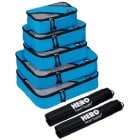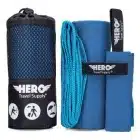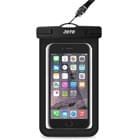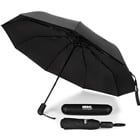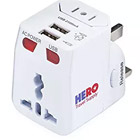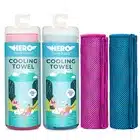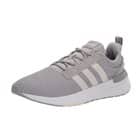Tunisia is a beautiful country, full of rich history, and smaller than you might expect! It’s home to archeological sites such as Carthage and famous mosques such as Kairouan. Whether you’re spending the night under the stars in the Sahara desert or relaxing at the beach, I’ve put together a list of all the things you’ll want to make sure to not forget, what to wear in each season, as well as a list of what NOT to bring.
17 Top Tunisia Packing List Items for 2025 + What to Wear & NOT to Bring
What to Pack for Tunisia - 17 Essentials
-
1. Packing Cubes
When you’re traveling, packing cubes are essential to staying organized. Especially if you’re traveling from city to city, you’ll want to know exactly where things are and keep items wrinkle-free. In addition to rolling clothes, packing cubes make a huge difference. This set of five also includes two laundry bags and comes in a variety of colors.
![Packing Cubes]()
-
2. Long Skirt
A long, flowy skirt is a great staple for wherever you’re traveling, but it especially comes in handy in a hot climate and more conservative culture. And this one has pockets! Pair it with a t-shirt or your favorite tank top and lightweight cardigan (depending on the area you’re in, you’ll want to keep your shoulders covered).
![Long Skirt]()
-
3. Virtual Private Network (VPN)
Virtual Private Networks (VPNs) are a solid investment anytime you’re traveling. Whether you’re waiting at the airport, at a cafe, or needing to catch up on work from your hotel, having a VPN keeps your sensitive data secure. Additionally, you’ll sometimes find certain news sites or streaming options are blocked in different areas, so if you want the same access you have at home, a VPN is a must.
![Virtual Private Network (VPN)]()
-
4. Neck Wallet
-
5. Light Scarf
-
6. Quick-Dry Travel Towel
While pretty much every hotel and host provides a bath towel, a good microfiber towel can be hard to find. And, a lot of places have policies about taking bath towels with you for the day! It’s a good idea to have a compact, quick dry towel that you can take with you at the beach or even as a soft layer in your backpack if you’ve got camera equipment you want to keep secure.
![travel towel]()
-
7. Deodorant Wipes
These aluminum-free, travel-friendly deodorant wipes are perfect for long, hot days in the Tunisian desert. For those of us with sensitive skin, finding products that work and don’t irritate our skin can be a challenge, but these are great. Whether you’re hiking, sightseeing, or just have a long day ahead of you. These wipes are a great refresher.
![Deodorant Wipes]()
-
8. Universal Waterproof Phone Case
-
9. Quick-dry Pants
Whether you’re trying to avoid excess sun exposure or making sure you’re not being culturally insensitive by exposing your knees or thighs, quick-dry pants are multi-purpose and always a comfortable and convenient option. These are lightweight jogger-style that will go with anything. (For international travel, I’d recommend avoiding camo print because of its associations with the US military)
![Quick-dry Pants]()
-
10. Chacos
When it comes to the hot, sandy Sahara, Chacos are my go-to. Getting sand or rocks in hiking boots or tennis shoes is inevitable and can really weigh you down. While you’ll want to make sure to remember sunblock on your exposed feet! There’s nothing like connecting to nature in sturdy, reliable open-toed shoes.
![Chacos]()
-
11. Windproof Travel Umbrella
You’ll want to remember to pack a travel umbrella, especially during Tunisia’s rainy season, which is from December to March. Any other time of the year, travel umbrellas are handy in protecting from the sun, too! If you’re planning on riding camels in the Sahara or need some shade at the beach, make sure you have a travel umbrella on hand.
![Windproof Travel Umbrella]()
-
12. Travel Backpack
While there will be times when you’ll want to travel with a handbag when you leave for the day, a travel backpack is perfect as a carry-on. With significant organizational options—including space for your laptop, a separate compartment for shoes, and a hidden anti-theft pocket, having a specific space for each thing saves you both time and energy.
![Travel Backpack]()
-
13. Universal Travel Adapter
If you’re traveling from North America, you’re going to need a universal travel adapter. It’s a good idea to have a few of them, especially if you have a lot of gadgets with you. Whether you want to keep one in your backpack or one in your suitcase, you’ll ensure you don’t end up somewhere without one.
![Adapter Plug Ports]()
-
14. Travel Insurance for Tunisia
You want to be prepared for anything when you travel. The ability to compare travel insurance options and find the best option for your vacation will save you time and money and give you peace of mind, so you can get back to focusing on time with your loved ones. We use TravelInsurance.com to compare policies from top companies to find the one that best fits us and our travel plans.
![travelinsurance.com]()
-
15. Cooling Towel
-
16. Breathable Hat
-
17. Portable Charger
Any other travelers have a horror story of navigating the city only to realize your phone battery is quickly dwindling? Keeping a lipstick-sized charger on hand isn’t just a matter of convenience. It can also become a matter of safety if you’re in an unfamiliar area. While there’s always someone willing to help out a traveler, it’s a good idea to be prepared and save the questions for finding the best restaurant or cafe.
![Portable Charger]()
Other Tunisia Packing List Items Not to Forget
- Luggage Locks
- Rolling suitcase
- Aloe Vera
- Hand sanitizer
- Aluminum-Free Deodorant
- Headphones
- Lip Balm
- Feminine Products
- Camera
- Memory Card
- Selfie Stick
- Jet Lag Relief
- Sunscreen
- Hand sanitizer
- Imodium
- Dramamine Motion Sickness
- Portable Fan
- Kindle
- Charger for Kindle
- Toothbrush
- Travel-size Toothpaste
- Underwater Camera
- Moleskine Journal
- Sunglasses
- Anti-theft Crossbody Purse
- Stain remover wipes
- First Aid Kit
- Hair Ties
- Protein Bars
- Hanging Toiletry Bag
- Floating Wrist Strap
- Insulated Water Bottle
What to Wear in Tunisia
As a general rule of thumb, think about the clothing that you feel most comfortable in on hot summer days, and adapt that as needed (quick-dry pants instead of shorts, a breathable short-sleeve tee over a tank top).
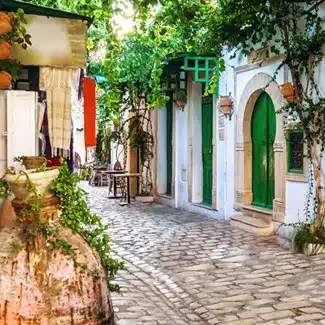
Below is a sample men’s clothing list.(All items link to Amazon.com for your convenience).
Since Tunisia is warm most of the year, it’s a good idea to bring breathable, quick-dry clothing. While it varies some by city and generation, women in Tunisia dress more conservatively. If you’re a woman traveling in Tunisia, it’s a good idea to have a lightweight, loose cardigan and scarf in your purse or backpack that you can easily layer.
If you’re trekking in the Sahara, you’ll want to make sure you have a hat that also covers your neck, a long-sleeve button-down with UV protection, and either Chacos or a good pair of hiking boots.
If you’re sightseeing in Carthage, make sure to opt for long pants or a long, flowy skirt and wear comfortable shoes. Generally, you’ll want to avoid sleeveless tops. If you’re visiting a mosque, you’ll want to keep that scarf on hand to cover your hair and make sure both your arms and legs are covered.
Below is a sample men’s clothing list.(All items link to Amazon.com for your convenience).
Since Tunisia is warm most of the year, it’s a good idea to opt for breezy, quick-dry clothing where possible. Culturally, it’s less common for men to wear tank tops or shorts, although, like most places, there is some generational variation. It’s a good idea to pack for warm weather while focusing on breathable, quick-dry layers.
If you’re planning a trek in the Sahara, make sure you have a hat that also covers your neck, a long-sleeve button-down with UV protection, and either Chacos or a good pair of hiking boots.
If you’re out shopping or sightseeing in Monastir, you’ll want to wear long pants and a lightweight, casual button-down. While men don’t have to worry as much about dressing conservatively if you’re visiting a castle or a mosque, you’ll want to make sure you have your legs covered out of respect and maybe stay away from the graphic tees.
Dressing for the Seasons in Tunisia
Winter/Rainy Season – December, January, February, March
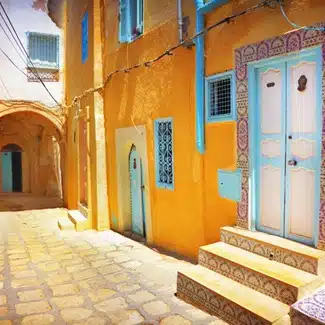
Spring – April, May
Spring in Tunisia is lovely, although keep in mind that temperatures are already heating up. Bring lightweight, loose-fitting clothing. Temperatures start to warm up and range between 55 degrees and 85 degrees Fahrenheit. Spring is a great time as it’s not uncomfortably hot and the summer crowds have yet to arrive.
Summer – June, July, August
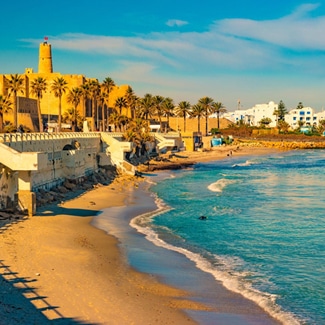
Fall – September, October, November
Fall is a lovely time to visit Tunisia as the temperatures have cooled to the 70s and 60s. You might want to pack a couple more cardigans and a light jacket for cool evenings, especially if you’re spending time in the Sahara.
Beach Days: If you’re headed to the beach, you’ll likely see beachgoers in a variety of swim apparel. You’ll see some women wearing bikinis and some women wearing burkinis. Pack the swimsuit(s) you feel most comfortable in, and don’t forget a cover-up and your quick-dry travel towel.
What NOT to Bring to Tunisia
-
1.DON'T Pack Lots of Books
Even if you’ve carved out time for your beachside reading, books are heavy and there’s always the chance they can get damaged during travel. While one or two books is nice for international travel, you’ll really notice the weight once you’ve finished the book and are lugging it around the country. Opt for a Kindle if you can.
-
2.DON’T Bring Lots of Cash
There are ATMs all around Tunisia, so there’s no need to bring a lot of cash. You’ll want to exchange currency, anyway.
-
3.DON’T Pack Too Much Stuff
Overpacking is easy to do, but it can really weigh you down. Try to pack shirts and pants that can easily match a variety of outfits.
-
4.DON’T Pack Full-Size Toiletries
Full-size liquids are just another complicated thing to keep up with every time you fly, and there’s always the chance of a spill. Opt for TSA-approved containers wherever possible.
-
5.DON’T Pack White Clothing
The desert is unsurprisingly windy and sandy. While you might be ok wearing white in some settings, it’s simpler to bring a light gray or light blue top instead.
-
6.DON’T Pack Unnecessary Valuables
Remember, anything that you take with you while traveling is at risk of getting lost along the way. Try to limit the valuables you bring to ones you’ll often use (such as a camera or wireless headphones).
Since Tunisia has a Mediterranean climate, you can leave your bulky coats and layers at home. If you do happen to be traveling during the winter (when it gets down to the 40s), a light jacket will suffice. And since the culture is generally more conservative, you can leave your short shorts at home. Although, the dress will depend on the person and city and setting you’re in, so feel free to ask your host or travel guide about what to wear and what not to wear.
FAQs about Traveling to Tunisia
-
1. Is it safe to travel to Tunisia as a woman?
![Is it safe to travel to Tunisia as a woman?]()
Tunisia is known to be more liberal and has more women in governmental positions. Like anywhere, you’ll notice women that dress more traditionally and Tunisian women who have a more European style of dress. While there is a more relaxed environment, especially in major cities, it’s a good idea to travel in groups and follow the cues of local women. Like anywhere, harassment happens, and it’s a good idea to avoid walking around alone at night. You can always carry a light scarf or a long, lightweight cardigan with you to blend in, depending on the setting.
-
2. What languages are spoken in Tunisia?
There are three languages spoken in Tunisia: Deja (Tunisian dialect of Arabic), Arabic, and French. Additionally, a lot of Tunisians, especially in the capital of Tunis, speak some English.
-
3. What archeological sites are there in Tunisia?
![What archeological sites are there in Tunisia?]()
I’d recommend checking out the UNESCO World Heritage List for Tunisia. But among the array of beautiful sites is the Amphitheater of El Jem, Carthage, Kairouan, the Medina of Sousse, and the Medina of Tunis.
The Amphitheater contains the impressive ruins of the largest colosseum in North Africa, dating to 3rd Century Rome. Carthage is an extensive archeological site containing remnants of several cultures (Phoenicio-Punic, Roman, Paleochristian and Arab). Kairouan is one of the holiest cities to Muslims in Tunisia. Anyone you talk to will know of The Great Mosque, rebuilt in the 9th century. Medina means “city” in Arabic. Both Sousse and Tunis have great historical significance and are worth spending time in. You might recognize the large, intricate doorways if you’ve also traveled to Morocco.
-
4. I’ve heard about the “Arab Spring” but don’t know anything about it. Where did it start, and how does Tunisia tie in?
The “Jasmine Revolution” or Tunisian Revolution was a protest against corruption, poverty, and political repression that took place from Dec 17, 2010 to January 14, 2011 and sparked other protests in the Middle East and North Africa that became known as the “Arab Spring”. You can read more about it here.
-
5. What are the top things to do in Tunisia?
![What are the top things to do in Tunisia?]()
There are so many incredible things to do in Tunisia! Whether you’re a Star Wars fan wanting to check out the original filming sets, visit archaeological sites such as Carthage, or are looking forward to taking a Camel Tour across the Sahara desert and camping underneath the stars, Tunisia is a smaller country with a lot of beauty.
-
6. Do I need a visa to travel to Tunisia? What vaccinations do I need?
For US passport holders, no visa is needed for up to 90 days of travel. Make sure you’re up to date on vaccinations–check out the current CDC guidelines for Tunisia and the U.S. Department of State’s travel advisory. Currently, travel along the border with Libya is not recommended.
-
7. When’s the best time of year to travel to Tunisia?
![When’s the best time of year to travel to Tunisia?]()
While it depends on the kind of weather you enjoy and the timing of your travel plans, if you can go in the spring or fall, the weather will be moderate. If you’re planning a beach vacation, Tunisia is hot and dry in the summer. Plan for heat up to the 90s in the summer and down to the 40s in the winter.
-
8. I’m traveling to Tunisia during Ramadan and/or Eid al-Adha. What should I expect?
Ramadan and Eid al-Adha are the two most important holidays in Islam. Because Islam is based on a lunar calendar, the dates change each year. If you’re in Tunisia during Ramadan, people around you will be fasting from both food and water from sunrise to sunset. If you have the chance, it’s really meaningful to fast in solidarity if you are staying with a host family or making friends. And iftars, or the breaking of the fast each evening, are a beautiful communal gathering. Ramadan, the month of fasting, ends with Eid al-Fitr.
Eid al-Adha honors the willingness of Ibrahim (you might know him as Abraham) to sacrifice his son, so observance usually includes a sacrifice of a goat or sheep and Eid prayers. Many Muslims fast the day before Eid al-Adha, and it’s considered the most sacred day of fasting.
Especially during Ramadan, try to be sensitive to those observing and don’t drink water, eat food, or smoke in public. Know that a lot of (if not all) restaurants will be closed during the day, so try to plan ahead. 99% of Tunisians identify as Muslim, so the majority of the people around you will be fasting. Local tour guides are always available to assist in how to be culturally sensitive as well.




